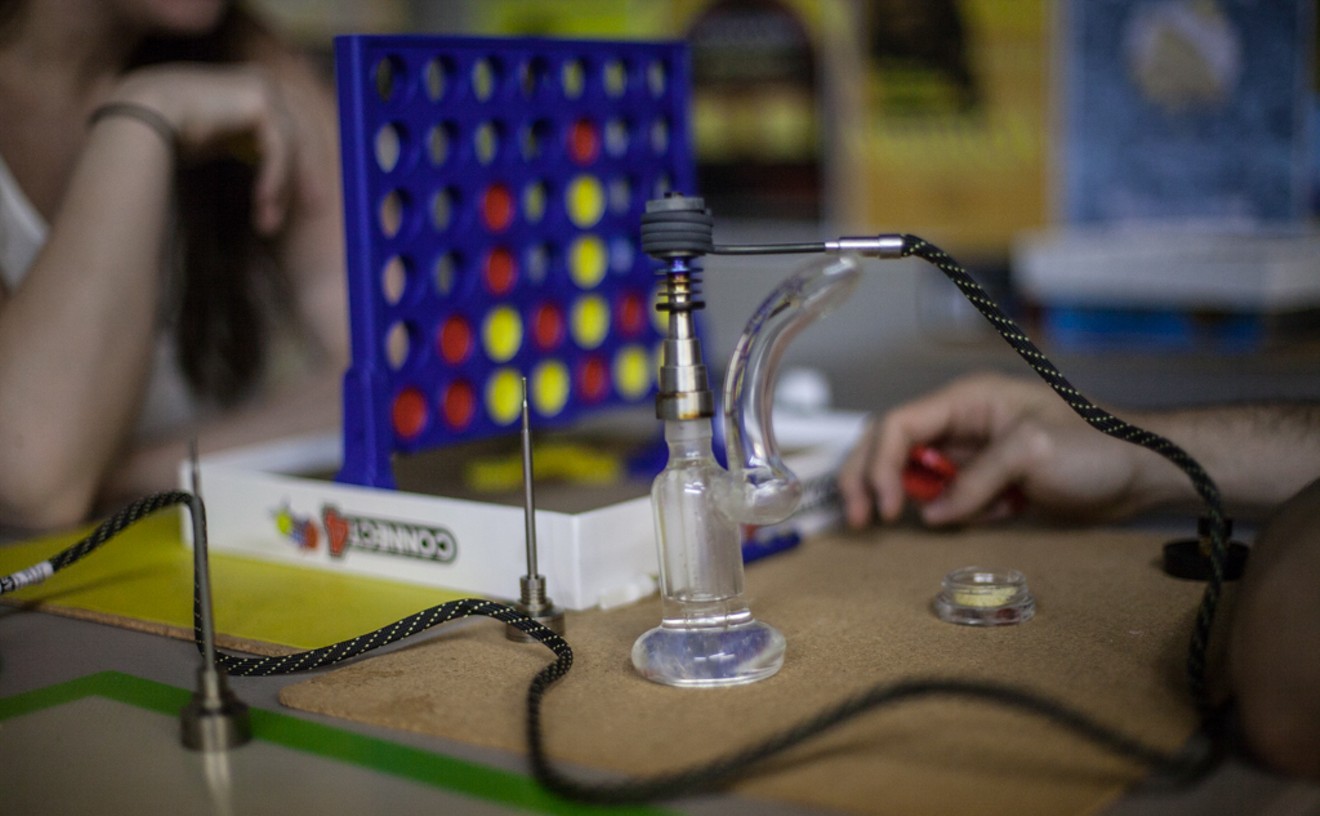A bill that would protect Colorado employees from being fired for marijuana use off the job has been killed after the measure's first hearing.
Introduced by state representative Jovan Melton, House Bill 1089 proposed shielding employees from being fired for off-hour pot use under the same law that provides protection to alcohol and tobacco consumers. Pushed as an effort to protect privacy and provide marijuana users with rights similar to those granted to users of other state-legal substances, the bill received loud opposition from business and trade organizations, including the Colorado Chamber of Commerce, several construction organizations and Pinnacol Assurance, the largest handler of workers' compensation cases in the state.
"If we're going to truly regulate [marijuana like] alcohol, then we need to clarify [this]," Melton said before the hearing, invoking popular text in Amendment 64, the constitutional amendment that legalized recreational pot in Colorado, calling to regulate marijuana in a manner similar to alcohol. The state rep came out swinging, bringing along Brandon Coats, a paralyzed medical marijuana patient who was fired from his job at DISH Network in 2012 after testing positive for THC, to testify on behalf of the bill in front of the House Business Affairs and Labor Committee.
"I believe that if we had this [law] in place at the time, I wouldn't have been fired," Coats told the committee, adding that he hoped the bill would pass "so other eligible Colorado employees don't get fired like me for lawful cannabis use during off-duty hours."
Coats sued DISH over the firing, arguing that he was never under the influence at work. The company didn't argue against Coats's claim, instead pointing to a Colorado law that says the term "lawful" refers only to activities that are legal under both state and federal law. The Colorado Supreme Court eventually agreed with DISH in 2015, ruling that companies could fire employees for legal, off-duty marijuana use because it isn't clearly defined as lawful under state law.
Melton's bill would have made any substance defined as "lawful" under the same law used to protect alcohol and tobacco users legal in Colorado, only allowing workers to be fired for marijuana use if it took place during work hours, on work property, or if the employee came to work impaired. But bringing out the poster boy of the case wasn't enough to push the committee in Melton's favor, and his House colleagues voted against the measure unanimously, 0-10.
The majority of representatives on the committee agreed with Melton that the issue should be addressed, but they were scared off by the lack of sufficient scientific impairment testing for marijuana use, as well as claims from the bill's opposition that the bill would lead to less safe workplaces across the state.
"There are competing ideas there," Representative Shannon Bird said of protecting privacy while also protecting an employer's rights. "But right now, we don't have a reliable method for testing impairment in the workplace." Bird said she would be open to legislation that protects registered medical marijuana patients, but felt Melton's proposal was too broad by including all marijuana users.
Breathalyzers and blood tests can show the amount of THC in one's body, but tolerance and time of consumption can dramatically affect how impaired someone really is. Regular users can still have high amounts of THC in their blood after not consuming pot for days and being totally sober, while novice users can still be significantly impaired hours after smoking despite not having THC blood levels that would deem them legally impaired.
For that reason, Representative Marc Snyder voted against HB 1089. "We were really close," he said.
Under Melton's bill, employees who worked under federal guidelines, as well as those in bona fide occupations with rational requirements banning marijuana use, wouldn't have been able to use the law as protection from being fired. However, representatives from the Colorado, Colorado Springs and Denver metro chambers of commerce, Pinnacol, the Colorado Mining Association, the Colorado Contractors Association, Associated General Contractors of Colorado, the Colorado Municipal League and Colorado Counties, Incorporated, all testified that protecting off-duty marijuana use could create future lawsuits over termination despite Colorado being an at-will state, where employees can be fired for poor performance.
Colorado Chamber of Commerce Vice President Loren Furman noted that to protect themselves from potential lawsuits, businesses would likely get creative when describing which employees held bona fide positions.
"A lot of our members are incredibly concerned about how this bill could impact the safety of their employees and the public," she said. "If any employer is sued over this, of course they're going to argue that [the terminated employee held] a bona fide position."
If it eventually became law, HB 1089 wouldn't be the first of its kind in the country. Nevada's state legislature passed a law last year that bans pre-employment marijuana tests; New York City also prohibits them. In 2017, the Massachusetts Supreme Court saw a case similar to Coats's, but ruled in favor of the medical marijuana patient, agreeing that using medical marijuana — the only legal form of marijuana in Massachusetts at the time— off the job wasn't grounds for dismissal.
[
{
"name": "Air - MediumRectangle - Inline Content - Mobile Display Size",
"component": "12017618",
"insertPoint": "2",
"requiredCountToDisplay": "2"
},{
"name": "Editor Picks",
"component": "17242653",
"insertPoint": "4",
"requiredCountToDisplay": "1"
},{
"name": "Inline Links",
"component": "18838239",
"insertPoint": "8th",
"startingPoint": 8,
"requiredCountToDisplay": "7",
"maxInsertions": 25
},{
"name": "Air - MediumRectangle - Combo - Inline Content",
"component": "17261320",
"insertPoint": "8th",
"startingPoint": 8,
"requiredCountToDisplay": "7",
"maxInsertions": 25
},{
"name": "Inline Links",
"component": "18838239",
"insertPoint": "8th",
"startingPoint": 12,
"requiredCountToDisplay": "11",
"maxInsertions": 25
},{
"name": "Air - Leaderboard Tower - Combo - Inline Content",
"component": "17261321",
"insertPoint": "8th",
"startingPoint": 12,
"requiredCountToDisplay": "11",
"maxInsertions": 25
}
]












